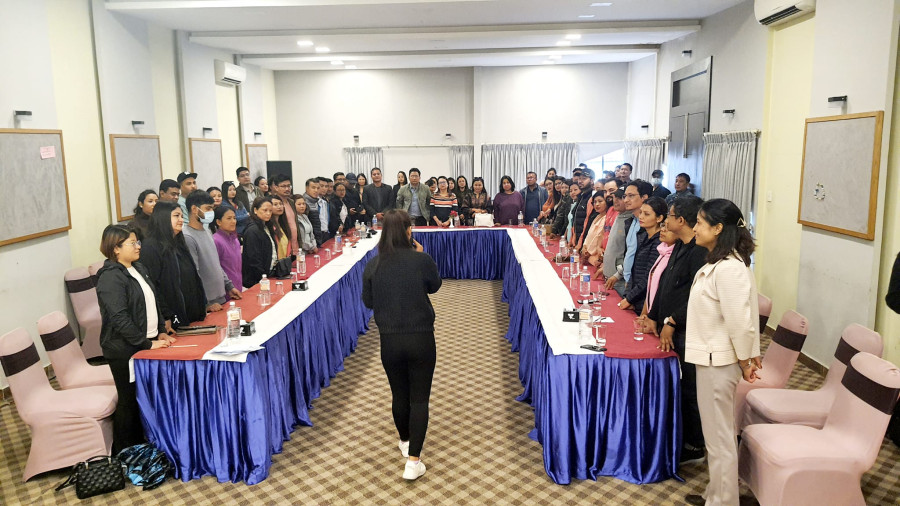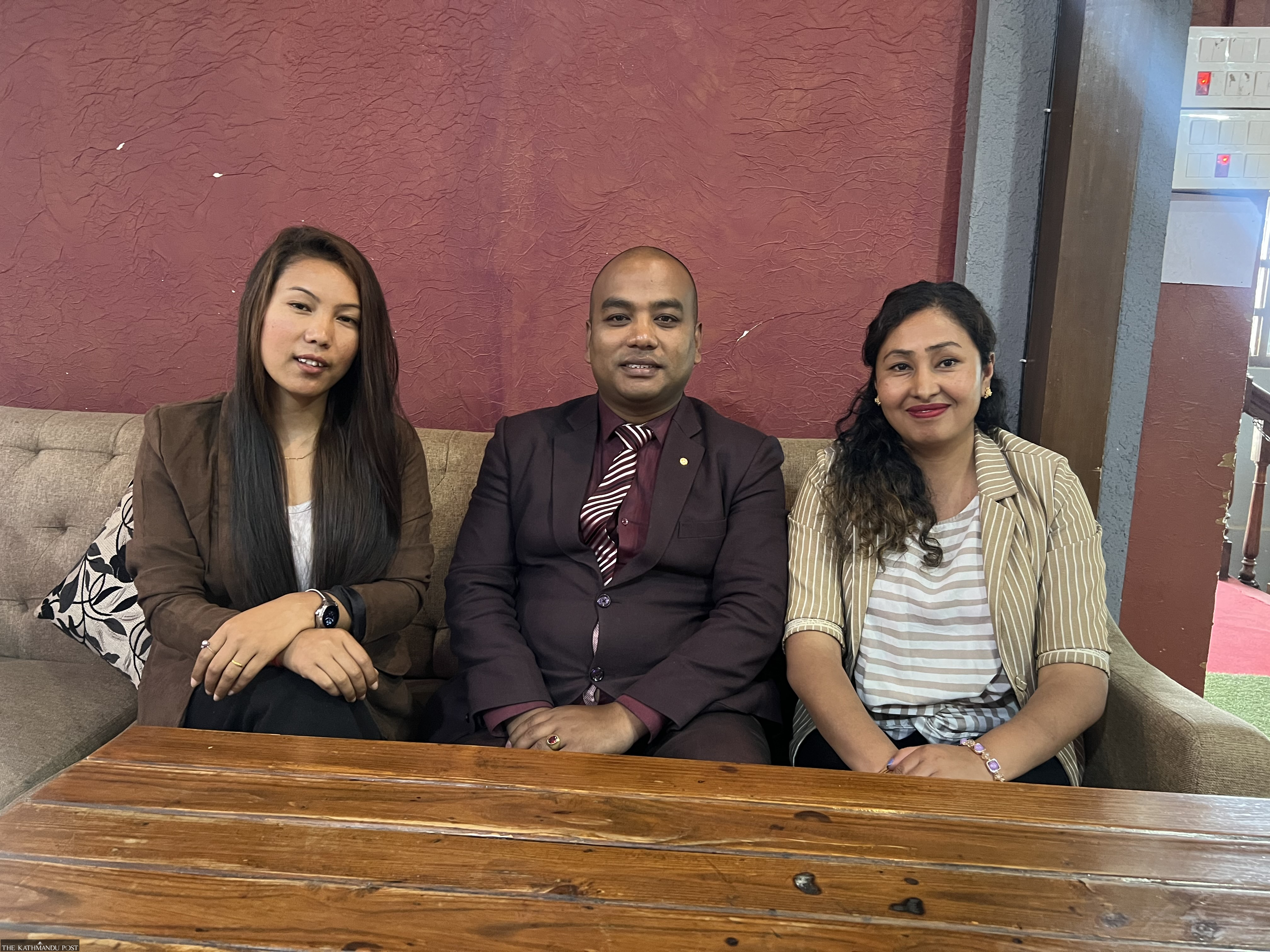Culture & Lifestyle
Learning the art of parenting
Grandparents are children’s favourite people despite big age gap because they pay attention to the wants of the children, expert says.
Apecksha Gurung
Sunita Napit recalls how her young son had once become addicted to watching something on his phone while eating dinner. Apart from disturbing family time, it also meant that he wasn’t mindful of the food presented before him. Despite several attempts to dissuade him from using his phone at the table, nothing really worked.
Desperate for solutions, Sunita reached out to child counsellors and parenting experts. They advised her to provide firm but gentle intervention. Gradually, she was able to get her son to quit using devices while eating. Delighted by the effective advice, Napit realised that adults, too, need help navigating their parenting styles. This is why, in 2019, along with Pratima Lama, she co-founded Smart Parenting Nepal—an online platform that connects parents with experts and counsellors in order to help them build valuable relationships with their children.
Now, after dinner, Sunita diverts her son’s energy by conducting a regular storytime session. She reveals that the concept of bedtime stories has proven advantageous. “By the time my son entered upper kindergarten (UKG), he could read more precisely and fluently than other kids,” she says. She also came up with the idea to discuss their day’s activities over dinner, which allowed her to determine whether her son was experiencing any difficulties at school.
Smart Parenting Nepal offers educational programmes like in-home parenting services, community-based groups, expert counselling, guidance sessions, workshops, and classes for parents. “We support parents and caregivers to foster the holistic development of their children,” says Kabindra Napit, head of communications for the organisation.
The organisation does many of its programmes virtually. As parents are often preoccupied with work and household chores, online sessions with child psychologists, paediatricians and other stakeholders help parents learn about all the aspects of their children’s lives, from health, nutrition to behavioural issues.
“Parents are expected to have a wide range of knowledge,” says Kabindra. Thus, if some parents come up with specific problems unique to their children (which are not covered by their general sessions), they connect them to experts.
Kabindra reveals that Smart Parenting Nepal’s online webinars have been the most successful. Their regular programme Abibhabak Chautari, held on the last Sunday of every month, is focused on sharing in-depth information on parenting. “We often bring in famous persons so they can share their stories regarding parenting practices,” says Sunita.

The organisation uses social media to advocate and inform parents about ongoing workshops and sessions. These seminars emphasise issues like moral growth and the mental, physical, social and emotional development of children.
To keep things interesting, the organisation also hosts a parenting quiz session every second Saturday of the month. “We want the parents to come in and have a good time. So, the winner gets a few gifts,” says Kabindra. The parent quiz asks questions about parenting from the recommended study materials.
Sunita reveals that they leave the more serious aspect of counselling to the professionals. “We invite prominent people to come in and share their experiences, ideas, and knowledge,” she says. “If a parent needs help with medical interventions, we leave it to our counsellor Dr Ram Pukar Sah,” she says.
Co-founder Pratima reveals that Nepali parents are often expected to be perfect in every way. Showing any signs of weakness and confusion while parenting is seen as a failure. According to her, dealing with children’s tantrums does get difficult and that is nothing to be ashamed about.
“We have to understand that kids don’t always have the language to express their feelings clearly,” she says. Pratima reveals that kids need help comprehending the reasons behind what is making them upset. This is where the role of the parents comes in.
Love and understanding are the way to a kid’s heart, she says. “How are grandparents children’s favourite people despite the big age gap? It’s because they pay attention to the needs and wants of the children.”
Parents often use silent treatment or ignore the children’s wishes in order to keep them from fussing. However, this has negative effects, says Pratima, as being unresponsive makes kids feel unheard.
Pratima and Sunita reveal that the main aim of their organisation is to make parents understand the importance of communication with their children. “Though it was challenging to make people understand at first, many are now learning the art of parenting,” says Pratima. “We want society to understand that just because an adult gives birth to a child, it doesn’t automatically make them a parent.”




 9.56°C Kathmandu
9.56°C Kathmandu















